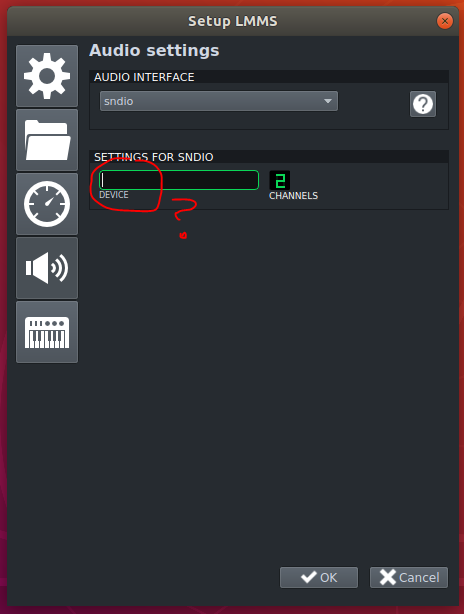-
-
Notifications
You must be signed in to change notification settings - Fork 1k
New issue
Have a question about this project? Sign up for a free GitHub account to open an issue and contact its maintainers and the community.
By clicking “Sign up for GitHub”, you agree to our terms of service and privacy statement. We’ll occasionally send you account related emails.
Already on GitHub? Sign in to your account
Allow building with sndio support on more systems than just OpenBSD #4486
Conversation
CMakeLists.txt
Outdated
| @@ -56,6 +56,7 @@ OPTION(WANT_MP3LAME "Include MP3/Lame support" ON) | |||
| OPTION(WANT_OGGVORBIS "Include OGG/Vorbis support" ON) | |||
| OPTION(WANT_PULSEAUDIO "Include PulseAudio support" ON) | |||
| OPTION(WANT_PORTAUDIO "Include PortAudio support" ON) | |||
| OPTION(WANT_SNDIO "Include sndio support" OFF) | |||
There was a problem hiding this comment.
Choose a reason for hiding this comment
The reason will be displayed to describe this comment to others. Learn more.
Why did you turn off Sndio by default? I think you can turn this on and disable on Windows.
There was a problem hiding this comment.
Choose a reason for hiding this comment
The reason will be displayed to describe this comment to others. Learn more.
Why did you turn off Sndio by default? I think you can turn this on and disable on Windows.
Done.
I was trying to be conservative and keep the behavior on non-OpenBSD
systems the same as before.
Sndio also supports FreeBSD and Linux. Signed-off-by: Tobias Kortkamp <t@tobik.me>
|
Please do not enable this blindly without some evidence that it actually works. I'll quote #3596:
|
|
What does sndio have to do with RoarAudio? The claim in #3596 that sndio is only available on OpenBSD is bogus. If you want to test this on Ubuntu install their libsndio-dev package. Here's a build log from building LMMS 1.2.0-rc6 on FreeBSD with this patch applied: https://people.freebsd.org/~tobik/logs/lmms-1.2.0.r6,2.log |
It's a description, not a claim. The message has since been removed from our
Our CI environment uses Ubuntu 14.04 and for that platform
Thanks for the log and for the link to the bionic mirror. Please understand this will break builds on any 14.04-based machines that have At the time of writing this, 14.04 is old enough that most desktop users have moved away from it, so this just needs to be rebased and merged... but before anyone does that...
@PhysSong can you explain why this PR was removed from our stable branch? If you have no objections, let's put it back on stable and merge it. |
|
So this compiles and bundles just fine on Ubuntu 18.04. I have a support question... If we're going to toggle this on for all distros now, how is this backend used? I've tried Tagging @devnexen too as he created the original PR which added Also @t6 just an FYI - In Ubuntu 18.04 there's a typo in # cmake/modules/FindSndio.cmake: line 29:
if(SNDIO_FOUND)
set(SNDIO_INCLUDE_DIRS "${SNDIO_INCLUDE_DIR}")
set(SNDIO_LIBRARIES "${SNDIO_LIBRARY}")
- endif(HAVE_SNDIO)
+ endif(SNDIO_FOUND) |
|
I do not know how it works under Linux but is device naming similar as OpenBSD ? Does not know if it brings a different experience than with Alsa neither. |
|
I forgot to mention is sndiod installed ? |
For starters disable all other audio daemons. Sndio on Linux needs exclusive access to the audio device when used locally. AFAIK It might be easier to test this with |
|
Ok so I built all under debian and seems to work tried couple of seconds with rsnd/0 device in my side. |
No, it wasn't but I managed to get it to work without it.
Thanks and spot-on. For the installed version: pasuspender -- lmmsFor the compiled version: pasuspender -- ./lmmsFor the AppImage version:
That's perfect, I'm in a VM, so there's only one back-end. Fortunately, once PA is suspended, sndio just works without specifying the device. This is ideal. So I think this is ready for merge to From a performance testing perspective, we ship a very resource intensive demo |
What I was afraid of was that |
I think we can add |
Sounds good. I still think this belongs on |
|
Thank you, @tresf! |
…MMS#4486) Sndio also supports FreeBSD and Linux.

Sndio also supports FreeBSD and Linux.